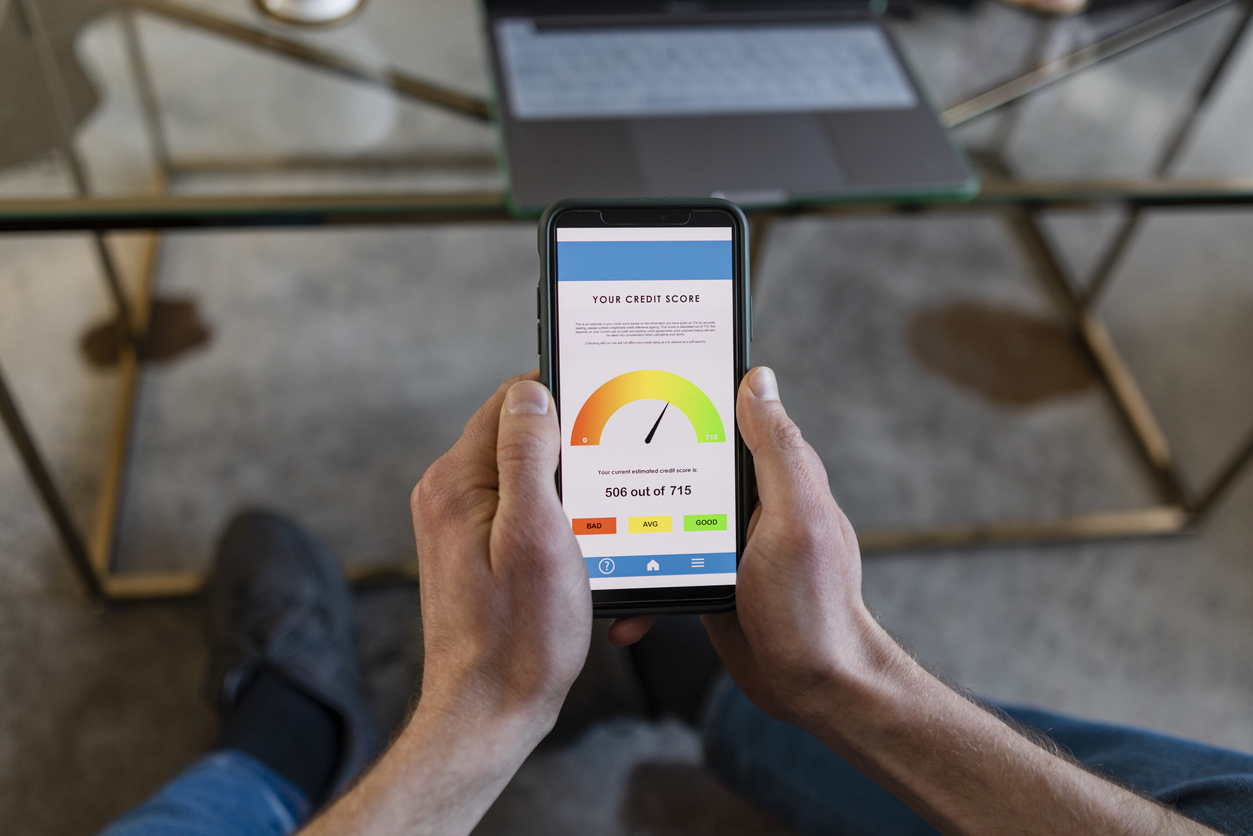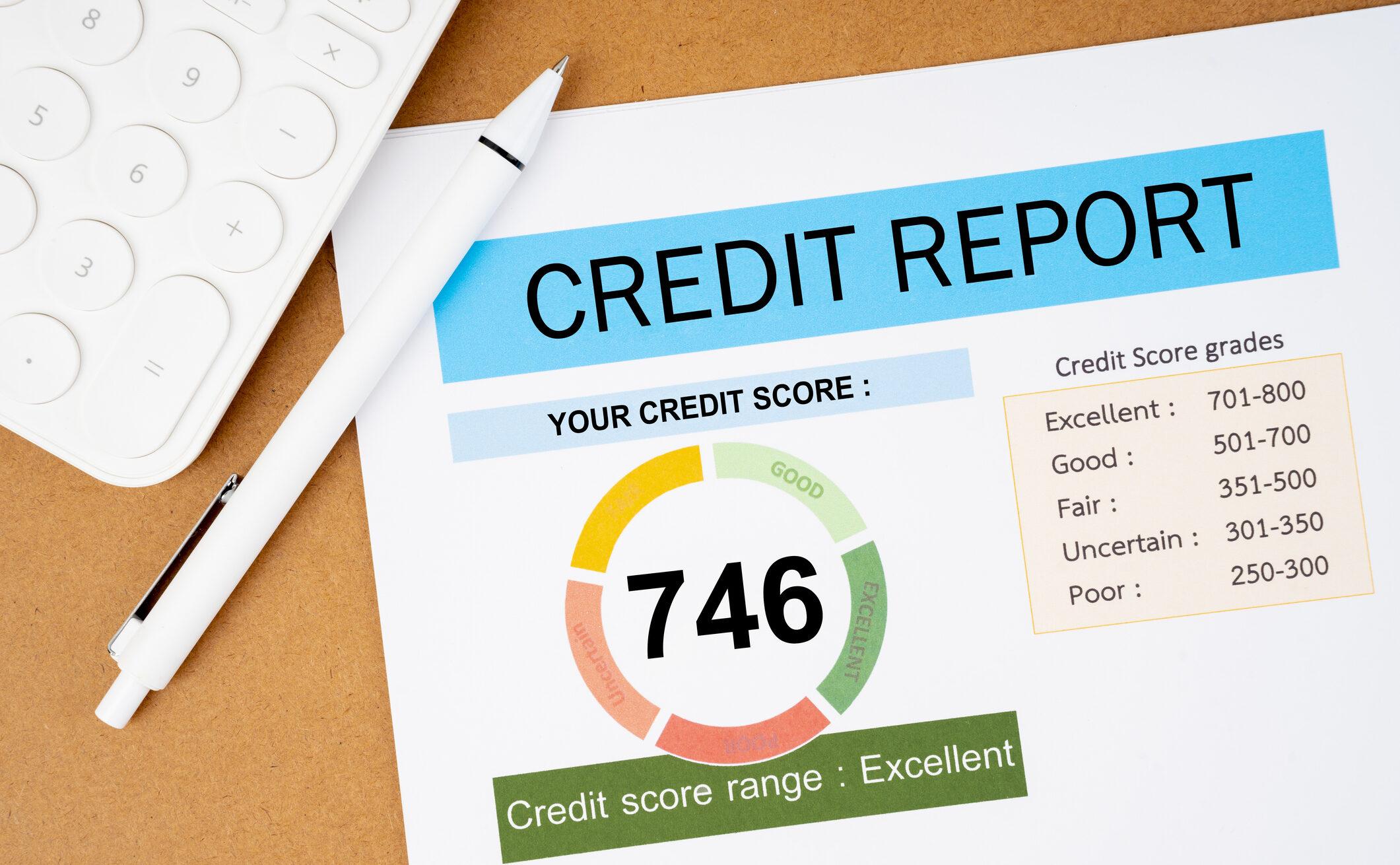
Key takeaways
-
Your credit score measures your ability to repay debts and the risk you present to lenders.
-
In the context of a home refinance, your credit score directly impacts your qualifying terms, such as the loan amount and interest rate.
-
Homeowners may consider finding a person to guaranty their home loan, or provide an additional down payment, to compensate for a low credit score.
A home refinance can be an effective method for improving your finances if it provides a lower monthly payment or shortened maturity date. However, you may remember that your credit score was a big deal when you first obtained a mortgage, and are now wondering if a lower credit score will affect your refinance options.
A low credit score can make the refinance process more challenging, but options exist. Depending on your refinancing goals, other choices may exist beyond traditional loans to meet your financial objectives.
Understand how your credit score affects your ability to refinance
Your credit score is a three-digit number representing your creditworthiness – your ability to timely repay lenders when you borrow money. Credit reporting agencies factor information about you and your financial history to calculate credit scores based on:
-
Debt repayment history (any defaulted loans or late payments)
-
Current amount of outstanding debt
-
The types of debt you have (e.g., student loans, car loans, credit cards)
-
Credit usage (how much of your available credit you use)
When you first obtained a mortgage to purchase a house, your lender likely reviewed your credit reports and credit score to determine your eligibility for a home loan and your qualifying terms.
The same process will apply when you go to refinance your current mortgage. If you have had substantial changes to your credit history since applying for a mortgage, you may notice a lower credit score when you refinance. A lower credit score may prevent you from qualifying for a refinance of your mortgage or require higher interest rates or a lower loan amount.

BONUS READ: Many respondents from a U.S. News survey stated a lower interest rate was their reason for refinancing their home loan.
Know your break-even point on mortgage refinance
Related to the extended maturity date is the break-even point for your refinance decision. Your lender will likely impose fees and costs to close on your mortgage refinance. Sometimes you will pay for these costs upfront, and other times your lender will allow you to roll them into the loan amount.
Either way, these are costs you will have to factor into the decision to refinance. You can calculate your break-even point by dividing the amount of closing costs by the monthly reduction in your mortgage payment from the refinance. If you plan on moving or selling your home soon, a refinance may not be the best option because the closing costs that will cut into your share of the sale proceeds.
Ways to refinance your home with a low credit score
Homeowners with lower credit scores who want to refinance or reduce their mortgage payments may have different options available.
1. Have a guaranty or co-applicant for your home refinance
Lenders may allow you to qualify for a mortgage refinance with a low credit score by having someone else put their name on the loan and be willing to assume its financial obligations. This could be a family member or any other individual who agrees to guarantee the loan if you default. The additional security from a co-applicant or loan guarantor gives lenders greater reassurance in extending credit to borrowers whose credit score reflects a higher risk of nonpayment.
2. Apply a lump-sum toward the home’s mortgage balance
Another method for refinancing with a low credit score is to lower the loan amount you are trying to obtain. You can do this by placing additional funds in your home (i.e., as a down payment). Lenders take a security interest in your home when receiving a mortgage, which gives them a right to foreclose on the property in the event of a default. Lenders who know you have a greater value invested in your home may be willing to overlook a less-than-ideal credit score because the home’s value will compensate for the risk you may pose as a borrower.
3. Consider a HEA with Unlock to access liquidity
Refinancing a mortgage can be a useful way to optimize your finances for the future. However, the process can be difficult or infeasible for those with bad credit. If you are looking for ways to increase your cash supply through your home, a home equity agreement (HEA) may be a reasonable alternative. A HEA is where you sell a portion of your home’s equity for cash proceeds. You then generally have 10 years in which to sell your home and pay the provider its share, or buy out the provider.
With Unlock Technologies, homeowners with equity in their homes only need a minimum FICO score in the 500s, far less than the 620 credit score that lenders often require for refinances. You can input a few details to see what your HEA through Unlock Technologies may look like. You can also contact us to speak with a representative if you want to learn more about this home equity option.
Contact Unlock Technologies today to see how a HEA may compare to a cash-out refinance or other loans.
The blogs published by Unlock Technologies are available for informational purposes only and not considered legal or financial advice on any subject matter. The blogs should not be used as a substitute for legal or financial advice from a licensed attorney or finance professional. Links in our blogs to third-party websites are provided as a convenience and for informational purposes only; they do not constitute an endorsement of any products, services, or opinions of the corporation, organization, or individual. Unlock bears no responsibility for the accuracy, legality, or content of the external site or for that of subsequent links.
The blog articles published by Unlock Technologies are available for general informational purposes only. They are not legal or financial advice, and should not be used as a substitute for legal or financial advice from a licensed attorney, tax, or financial professional. Unlock does not endorse and is not responsible for any content, links, privacy policy, or security policy of any linked third-party websites.”


